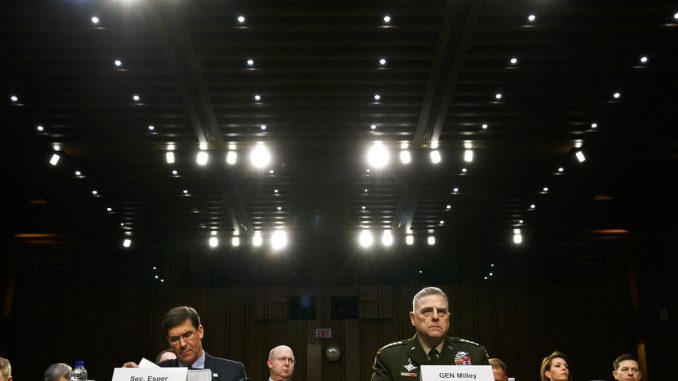
WASHINGTON, D.C. — Defense Secretary Mark Esper on Thursday defended using National Guard soldiers to support law enforcement agencies in handling civil unrest triggered by the killing of George Floyd.
“Using active duty forces in a direct civilian law enforcement role should remain a last resort, and exercised only in the most urgent and dire of situations,” Esper said in a statement prepared for Thursday’s hearing. “I want to make very clear that no active-duty military units engaged protesters or otherwise took a direct part in civilian law enforcement or federal protection missions in the District of Columbia or anywhere else in the country.”
The House Armed Services Committee was hearing testimony by Esper and Gen. Mark Milley, chairman of the Joint Chiefs of Staff, for the first time since March 4, when they appeared to discuss the administration’s defense policy proposal.
“As one of the country’s most respected institutions, we work to maintain the trust of the American people through our time-honored commitment to our mission and core values, while remaining neutral and non-partisan in all matters,” he said.
Esper and Milley were likely to face questions by committee members on a simmering debate over removing the names of Confederate Army officers from U.S. Army bases and banning other Confederate symbols. That also puts them potentially at odds with Trump, who has said he opposes removing the Confederate names from bases like Fort Bragg in North Carolina.
The House and Senate versions of the 2021 defense policy bill require name changes at those 10 Army bases. Trump has said he will veto the bill if it reaches his desk with that provision intact.



